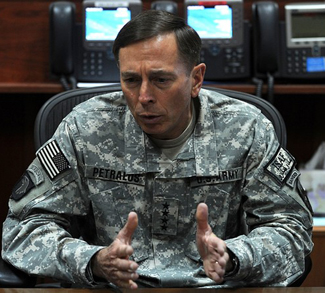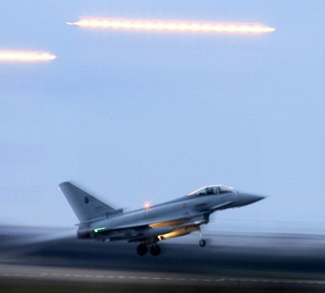In recent years, US support for the North Atlantic Treaty Organization (NATO) has rapidly waned from its post-Cold War peak. According to a poll by the Pew Research Center, just 58% of US respondents expressed support for NATO, which is a sharp drop of four points from 2023, despite the Russia’s ongoing war raging in Ukraine. Similarly, only 66% of Americans say that NATO membership benefits the country, down from 69% in 2022.
As NATO member nations gather to celebrate the 75th anniversary of the alliance at the July 9-11 Summit in Washington DC, it would give European allies a critical boost of confidence to see strong support from prominent members of both parties. But if the hostile, isolationist narrative takes over, we should be very concerned about the future of our national security structures.
It’s true that Western Europe has enjoyed a vacation from history since the end of the Cold War. Their economies thrived under the assumed guarantee of the US security umbrella, public spending was directed away from defense, while energy reliance on Russian gas was thought to disincentivize conflict. But Russia’s February 2022 invasion of Ukraine abruptly awoke Europe from that pleasant dream, and ushered in a new era in which Europe must play a much larger geopolitical role.
Former President Donald Trump and his supporters have sharply complained about NATO, arguing that allies have been taking advantage of the United States. During a speech at a rally earlier this year, Former President Trump shocked observers when he said he would “encourage” Russia or other enemies to “do whatever the hell they want” with NATO countries who aren’t paying enough.
Though we should always be careful to separate Trump’s campaign rhetoric from actual policy proposals, there is a concerning tendency among his supporters to view security alliances on a zero-sum transactional basis. According to their view, many countries “owe NATO billions of dollars” to compensate for past US spending.
This isn’t just deeply misleading, but flatly false. There are no unpaid dues, bills, or invoices among NATO members, no one owes any debt to any other member. There is the commitment of 2% of GDP to be spent on defense, which was agreed at the 2014 NATO Summit in Wales, and actually, we have seen the strongest growth of defense spending among members in the past several years. This year it is expected that twenty-two out of the thirty-two total member countries will meet or exceed the 2 percent target, including France and Germany.
However, if we must look at NATO from a transactional basis, then we should consider return on investment. Far from being a burden on the US taxpayer as argued by the isolationists, the United States has benefitted enormously from the alliance.
Firstly, in terms of raw defense spending, the United States has not expended budget on behalf of other nations. In fact, without NATO, US defense spending would in fact have to be much higher. Thanks to NATO, the United States is better prepared to defend itself and is able to apply its resources more effectively. The common funding mechanisms and joint military exercises on NATO ensure that member nations share the costs of defense, which helps mitigate the financial strain on a single nation. Additionally, the standardization of equipment and interoperability among NATO forces means that the U.S. can operate seamlessly with its allies, enhancing overall military readiness.
Secondly, the US benefits from the position of leadership in the global economy. By leading NATO, the United States maintains significant influence over global security policies and initiatives. This leadership role allows the U.S. to shape the strategic direction of the alliance, ensuring that its interests and values are represented on the global stage. In particular, we are seeing the emergence of coordinated defense industrial strategies among NATO allies, including the European Defense Industrial Strategy (EDIS), which aims to lay out a framework not only to dramatically increase manufacture of munitions, but to compete globally in technology, innovation, agriculture, and energy.
Lastly, there is the simple face value of deterrence from attack. A mutual defense treaty with such a large, geopolitically important bloc greatly improves US national security at a much lower cost than going at it alone.
But Trump and other Republicans are not wrong to criticize and call for reform and modernization of NATO. Europeans cannot be free-riders, and they now need to recognize that unexpected events, such as the Russian invasion of Ukraine, can happen at any time. They need to comply, contribute, and make up for the losses during times of their under-delivery.
Working together, we can reform NATO according to the geopolitical realities of the 21st century. We need to work together on fair terms to address the threats not only in Eastern Europe but also in the Middle East and Indo-Pacific, which include not only military threats but also hybrid warfare, such as economic disruption and disinformation.
By not focusing solely on values but also on economic ties and self-sufficiency, the West can be better prepared to stand ready against the tyrants of the world who fear our freedoms. Indeed, NATO has been one of the smartest investments made by the US government in the past century.
Bilal Bilici is a Member of Turkish Parliament and Foreign Affairs Committee Member.
The views expressed in this article belong to the author(s) alone and do not necessarily reflect those of Geopoliticalmonitor.com.




